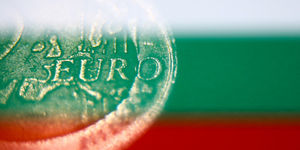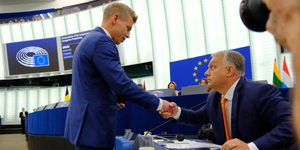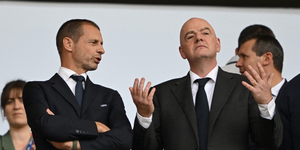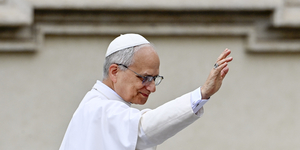Median - plummeting approval ratings
Hungarians want to see early elections, though a full fifth of them would not trouble to vote. A Median survey conducted for HVG in May sets new records.
Early elections are looking an ever more realistic possibility - and public opinion appears to support this possibility. Furthermore, the number of people in favour of this is growing fast: in April, 50 per cent were in favour, now a full 56 per cent want to head to the polls.
Only a tenth of those surveyed would like to see the existing minority government stay in power.
Party elections during the past year © HVG |
Most voters would vote for the right-wing opposition, whether certain to vote or not. This represents no change on the previous half of the year - almost every month, two thirds of certain voters would go for Fidesz, and around a quarter for the Socialists. In recent months, the Hungarian Democratic Forum has been doing better. It appears to enjoy a constant support base above the 5 per cent threshold needed to enter parliament, whereas the Free Democrats, who have just left the coalition to join the opposition, has been performing poorly. The Free Democrats previously enjoyed a relatively constant 5 per cent support level, which has now declined to 3 per cent.
Some 71 per cent of respondents assume Fidesz would win the next elections, while only 9 per cent are banking on a Socialist victory, meaning that even Socialist supporters do not expect their party to win.
Pessimism reigns regardless of party allegiance. Not since the regime change have so many said the country is heading in the wrong direction. In October 1995, six months after the Bokros package was announced, 80 per cent of respondents were pessimistic - now 82 per cent are. Just as then, the poor economic outlook was the reason for the pessimism, since it began in summer 2006, immediately after the cuts were announced. The subsequent further decline in optimism is probably a consequence of the political uncertainty, since the indicators have been worse than they are now. What is certain is that compared to previous months, the collapse of the coalition has attracted the most attention, while signs of consolidation are not yet being felt.
In recent months, the prime minister has continued to set new records for unpopularity. In May, only 19 per cent of voters wanted to see Ferenc Gyurcsany "in an important political role," making him the least popular prime minister since 1989. Jozsef Antall's low point was
25 per cent, Peter Boross's 39 per cent, Gyula Horn's 29 per cent, Viktor Orban's 40 per cent and Peter Medgyessy's 37 per cent.
Right-wing voters never liked Gyurcsany, and other voters lost patience with him after the Oszod speech and the announcement of the cuts package. Tensions in the coalition have led to his approval ratings plummeting among Free Democrat supporters as well, meaning that only a third of all Free Democrat voters were keen on him in recent months. Whereas in the past almost all Socialist voters supported the prime minister, now only 80 per cent too.
HANN ENDRE, KARÁCSONY GERGELY


















